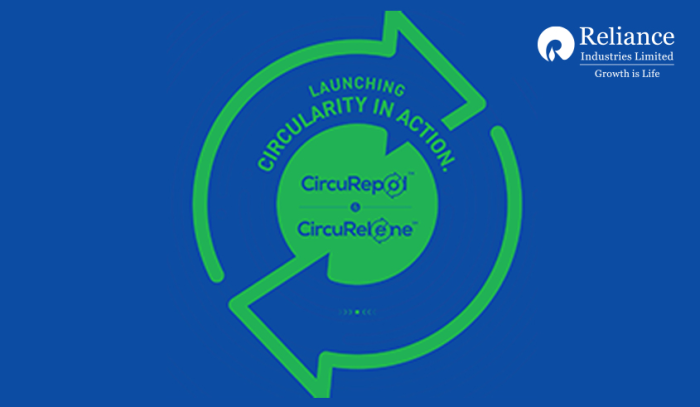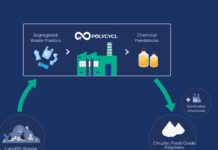Reliance Industries Limited (RIL), the operator of the world’s largest integrated refining and petrochemical complex at Jamnagar in Western India, has become the first Indian company to chemically recycle plastic waste-based pyrolysis oil into International Sustainability & Carbon Certification (ISCC)-Plus certified circular polymers, according to a company press release.
According to the company, this innovation is a testimony to RIL’s commitment to reducing plastic waste and supporting the circular economy in India. It says that it has already shipped its first batch of ISCC-Plus-certified circular polymers, which the company named CircuRepol (Polypropylene) and CircuRelene (Polyethylene).
The company says it has paved the way in India by using new technology to recycle plastic by converting plastic waste into special circular polymers, thereby making a positive impact on the environment.
Innovative methods such as chemical recycling help create a circular economy. The company says it firmly believes in finding smart solutions to reduce plastic waste and inspire others to join in this journey towards a greener future.
RIL’s Jamnagar refinery in Gujarat became the first refinery to get the important ISCC-Plus certification, proving that it can produce circular polymers through chemical recycling. The ISCC-Plus certification, it says, guarantees that traceability and rules are followed in making circular polymers.
The technology, it says, turns different types of plastic waste, including single-use and multi-layered plastics, into pyrolysis oil. The company is working with its partners to increase the production of this oil and turn the yield into circular polymers.
Chemical recycling has many benefits, including turning mixed plastic waste into high-quality materials for new plastic. These materials can be used for packaging that comes into contact with food.

Chemical recycling, also known as advanced recycling, is a process where mixed waste plastic especially – that is not mechanically recyclable into as good or lateral polymers, is converted to pyrolysis oil by the suitable cracking of a long polymer chain. Currently, most of the pyrolysis processes are based on the thermal route, which leads to lower yield and inferior quality of pyrolysis oil. Chemical recycling is also said to require considerable capital expenditure and scale in order to be successful, which is where smaller attempts in India have thus far failed.
RIL says it has developed a continuous catalytic pyrolysis technology, which provides high yields of good quality pyrolysis oil from plastic waste. The process has been successfully demonstrated at a demo scale, the company said. Although it is not clear what ’demo scale‘ or how much of the first batches of CircuRepol (Polypropylene) and CircuRelene (Polyethylene) have been certified and shipped, we expect the company that is known for scale, will attempt to establish the new catalytic pyrolysis technology in significant quantities to prevent mixed plastic from being mainly down-cycled.
Scaling up
The RIL release says that it is currently able to process 600 tons per month of good quality pyrolysis oil sourced from various suppliers and that it is working with them to ensure the quality of these for expanding its production to current capacity. It says that it is hoping to expand the reliable and high quality sourcing of these oils with chain of custody precautions to maintain the integrity and transparency of the recycling supply chain. In addition, it plans to increase the catalytic processing of these oils to a capacity of one million metric tons by 2030 to make a substantial contribution to the circular use of plastics and especially mixed plastic waste.
This article based on a press release has been slightly edited on both 4 January 2024 and 5 January 2024.











